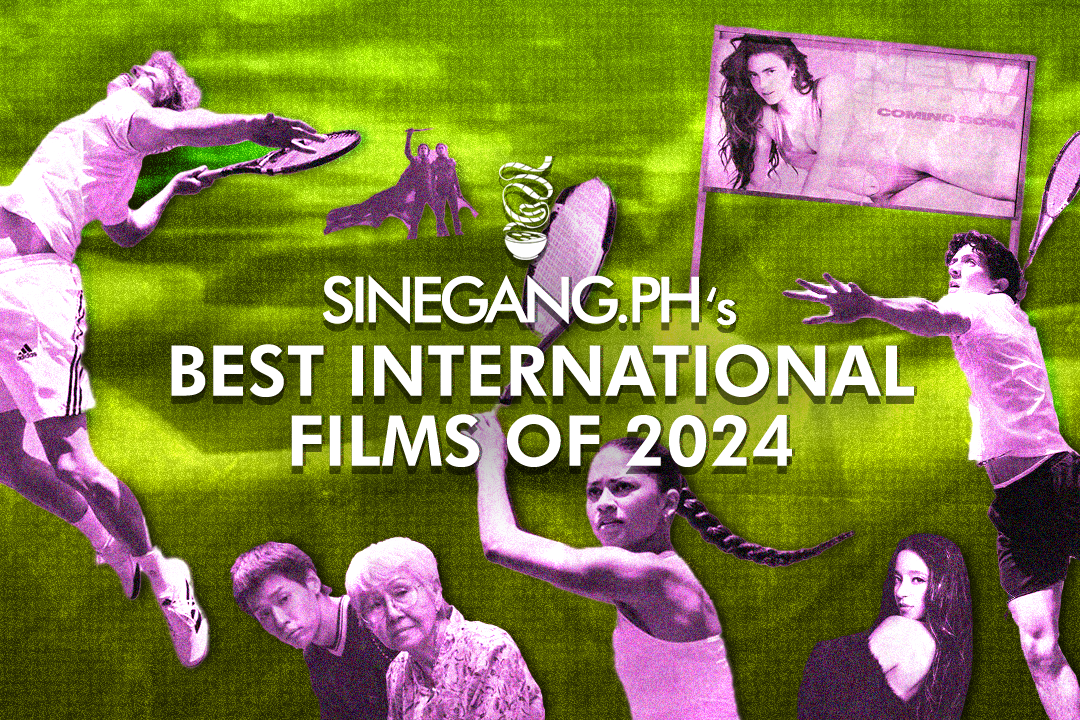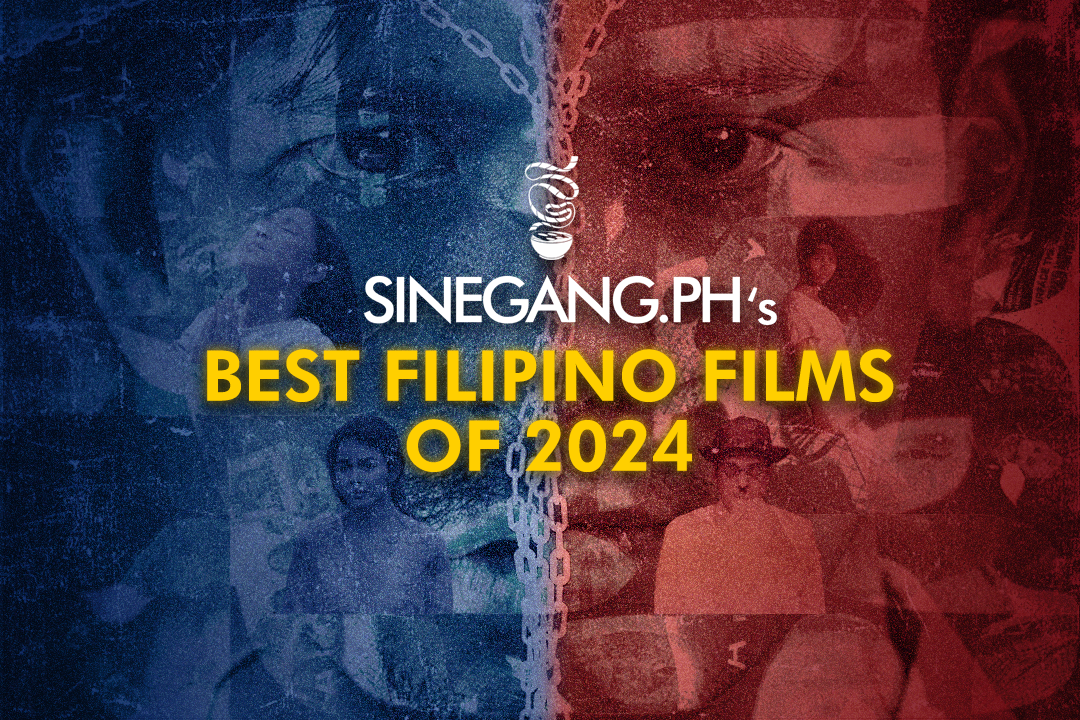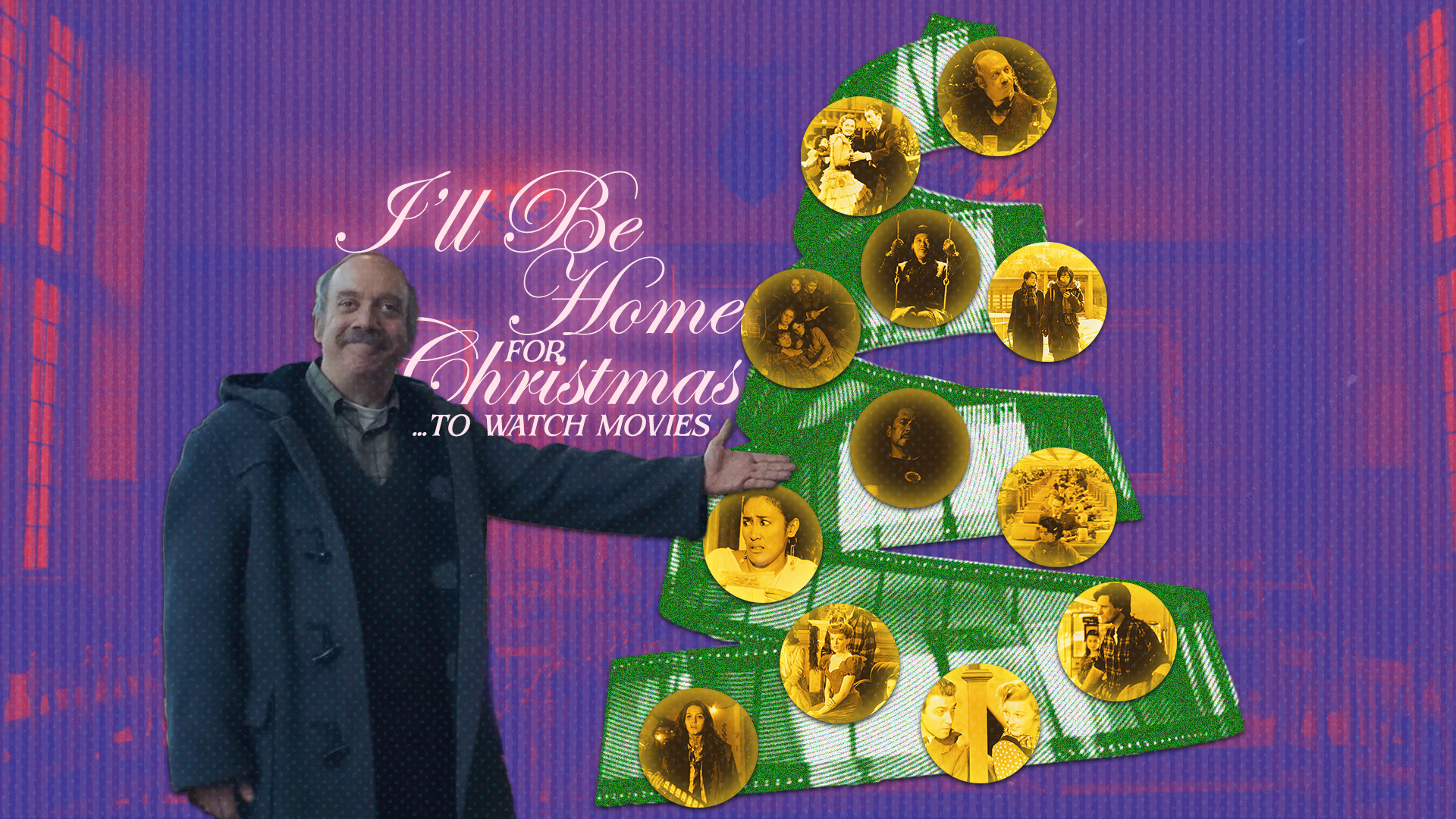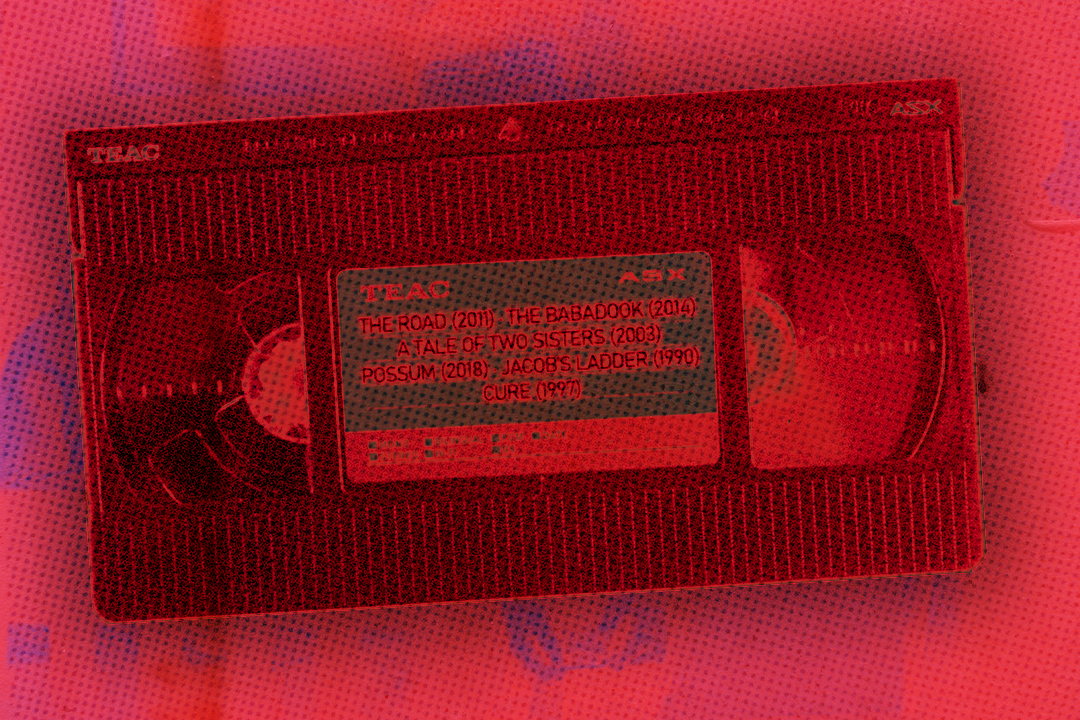Pa-Pa-Pa-Palaban’: 10 Great Movies Directed by Women
‘Pa-Pa-Pa-Palaban’: 10 Great Movies Directed by Women
Feature art by Abigail Manaluz
In celebration of Women’s Month, the staffers of SINEGANG.ph have curated a special watchlist of movies by extraordinary and visionary female filmmakers. This list has everything: from classic animation to the bakbakan (a Filipino action flick), and Keanu Reeves in a hot trench.
As declared by one the foremost legal practitioners of the 21st century: “Women’s stories matter—they just matter.”
Sheila Francisco in Leonor Will Never Die.
Leonor Will Never Die (2022)
Dir. Martika Ramirez Escobar
Letting your imagination go is like unleashing an untamed dog; you'll never know where its journey will take you. Martika Ramirez Escobar's playfully imaginative Leonor Will Never Die perfectly captures what it's like to be in an artist's headspace through a comatose elderly screenwriter (Sheila Francisco) whose mind remains relatively active when she finds herself in the world of her latest screenplay. Presented in the style of vintage Pinoy action movies of the 80s, Leonor is a wacky, passionate love letter to all the working artists out there. — Justin Caunan
Marjane Satrapi, in her animated form, in Persepolis.
Persepolis (2007)
Dir. Marjane Satrapi
Rooted in the pre-Islamic Republic Iranian society, Marjane Satrapi’s personal memoir is a tapestry of growing up in the last days of the Shah-era Iran right before the Iranian Revolution in 1979. Take Iran out of the picture and Persepolis is a universal story of a girl who wishes to live her life to its fullest potential amidst a changing socio-political environment. Marji, an outspoken girl raised in a loving household, faces an eroding society, abruptly changing their lives for better or for worse. With change comes wisdom, growth, and a new perspective in life; Persepolis is a reminder of how societal changes allow us to reflect on ourselves to become wiser human beings. — Kyle Livelo
Keanu Reeves and Patrick Swayze in Point Break.
Point Break (1991)
Dir. Kathryn Bigelow
While most people will probably know Kathryn Bigelow for the Oscar-winning The Hurt Locker, I think that Point Break deserves its flowers too. In another person’s hands, this thriller about an FBI agent infiltrating a group of surfers could go so wrong. Through Bigelow, the film becomes an electric cat and mouse game that crackles with tension and at times, homoerotic subtext between Patrick Swayze’s Bodhi and Keanu Reeves’ Johnny Utah. The way the action is shot here puts you on edge, whipping you through the air as you fall through the sky without a parachute, or makes you see which ex-president will shoot first. Bigelow understands male dynamics in a way that grounds the film in reality despite all the stunts. Point Break is the perfect example of a 90s action movie, and one that I think would not get made today. — Gab Aniceto
Chantal Akerman in News from Home.
News From Home (1976)
Dir. Chantal Akerman
News from Home strikes a resonant emotional chord on its singular note: thoughtfully-composed static shots of bustling New York City set to the soundtrack of director Chantal Akerman narrating her mother’s letters to her while she’s away. Akerman’s mother muses about her day, regales of significant family events her daughter has missed, worries about her, implores her to write back. Often there are long stretches of silence in between, and these operate as the intertwining feeling of freedom and emptiness that being alone in a big city without family to lean on can bring. Most experimental documentaries like Koyaanisqatsi or Samsara are praised for their all-encompassing images and ambitious abstractions; News From Home is similarly envelope-pushing but in a simpler manner as it functions as an examination of the beauty and complexity of mother-daughter relationships. It has no other flourishes besides what has already been written (which may put the more impatient viewer to sleep), but it still leaves an indelible mark on the heart and soul with its unique blend of nostalgia, comfort, and bittersweetness. — Thandie Aliño
Saan Ako Pinaglihi? (2024)
Dir. Rafaela Abucejo
Rafaela Abucejo's Saan Ako Pinaglihi is Puregold's CinePanalo 2024 Crowd Favorite Short Film for a reason. The online success of this short produced by students from the Polytechnic University of the Philippines became a hallmark for diversity of queer stories in Philippine cinema. Abucejo's lighthearted, wholesome approach to a story of such deep significance for the filmmakers themselves resonates with those who finally saw themselves, and eventually, with those who welcomed it with an open mind. Most of all, Zoey Madison Lim's charming portrayal of eight-year-old Chinky evokes a glimpse of how happy and loving an accepting and inclusive society is—the very message and heart of this twenty-minute gem. — Sam Arinto
Marietta Subong, or Pokwang, in Oda sa Wala.
Oda sa Wala (2018)
Dir. Dwein Baltazar
One man's trash is another man's treasure. But in the case of Sonya—emphatically portrayed by Marietta Subong, or Pokwang, as we know and love—that treasure is a corpse. Director Dwein Baltazar’s cinematic range keeps me up at night: going from Gusto Kita With All My Hypothalamus to Oda sa Wala takes some serious creative compartmentalization. Baltazar’s already-winning filmography is a testament to just how fine of an observer and storyteller of humanity she is. — Miguel Louis Galang
Keanu Reeves and Carrie-Anne Moss in The Matrix.
The Matrix franchise
Dir. Lana and Lilly Wachowski
Cemented into popular film culture for good reason, the four films in The Matrix franchise are not only some of the most vividly rendered sci-fi blockbusters rife with stunning action and intriguing concepts but also with unconditional compassion. Beyond its constructed themes on the nature of truth, destiny, determinism, and storytelling lies a burning plea and ode to interpersonal connection and self-actualization; a rebellion against the greater prejudicial structures that prevent us to do so and force us towards something we really aren’t. With Lana Wachowski herself confirming the first film’s subtextual trans allegory, the franchise’s emotional core further resonates on a deeper level. Take the red pill and open your hearts, for we are all the chosen ones. — Martin Yenko
Juvy Ann Clarito in Sa Ilalum sa Balabal sa Alitaptap.
Sa Ilalum sa Balabal sa Alitaptap (2024)
Dir. Juvy Ann Clarito
Juvy Ann Clarito’s Sa Ilalum sa Balabal sa Alitaptap has never stopped winning since its premiere at the Film Development Council of the Philippines’ SineKabataan last year, traveling from festival to festival and bagging top honors. Its success is well deserved as the film presents a haunting take on land grabbing, intertwined with generational trauma and the oppression of its female protagonist. Unlike mainstream narratives that portray the oppressed as powerless, the film reclaims the agency, empowering the inherent strength and redefines empowerment on its terms. The film might as well tell that if the land does not devour the greedy, then justice must be taken into the hands of those who have suffered the most: women. — Christ Dustly Go Tan
Corinne Marchand in Cléo from 5 to 7.
Cléo from 5 to 7 (1962)
Dir. Agnès Varda
A pioneer of the French New Wave, Agnès Varda was one of the most influential filmmakers of her time. Cléo from 5 to 7, her 1962 masterpiece, follows Florence "Cléo" Victoire (Corinne Marchand), a young singer, as she moves through Paris while awaiting biopsy results that could change her life. Presented in near real-time, Varda delves into themes of the male gaze, female independence, and fear of the unknown. Ultimately, her work challenged gender roles, identity, and social norms, as seen in subsequent films like Vagabond, One Sings, the Other Doesn't, and Kung Fu Master. — Ralph Regis
Jane Wickline and Odessa Young in My First Film.
My First Film (2024)
Dir. Zia Anger
Zia Anger’s My First Film is an evocative, semi-autobiographical exploration that resonates deeply with the collective experience of growing up as a woman, an artist, and a creative navigating the tightrope between failure and freedom. Anger masterfully blends documentary and performance art, intimately examining the complexity of female pain—no, anguish—anger, grief, and the never-ending process of birth, giving birth, death, and rebirth. Stripping herself bare, both literally and metaphorically, she invites everyone to bravely embrace mistakes, confront fears, and, despite everything, make their first one. — Saund Axl Rose Mendez


























